Bangladesh is a country. Part-6.
Restoration of Military Rule, 1975—77.
The professional killers of Mujib captured the three senior positioning officers in Mujib's bureau however introduced as president the fourth in control, a long-lasting associate of Mujib and pastor of trade, Khondakar Mushtaque Ahmed. Mushtaque, a moderate individual from the Awami League (the name to which the Bangladesh Krishak Sramik Awami League returned after Mujib's passing), was known to lean toward the West and to have been disturbed by Mujib's nearby ties with India. Numerous spectators trusted him to have been a backstabber in Mujib's death. All things being equal, his part in the new administration was surrounded by the majors, who even moved into the presidential royal residence with him. Mushtaque declared that parliamentary popular government would be reestablished by February 1977, and he lifted Mujib's restriction on political gatherings. He founded solid projects to diminish degenerate practices and to reestablish productivity and open trust in the legislature. He additionally requested the exchange of all the hardware and resources and a large portion of the faculty of theJatiyo Rakkhi Bahini to the armed force and the inevitable nullification of the Jatiyo Rakkhi Bahini. Mushtaque guaranteed to break up the tyrant controls that Mujib had put resources into the workplace of the administration, yet the proceeding with insecure circumstance did not enhance enough to allow a huge level of progression. With a specific end goal to monitor Mujib supporters, Mushtaque announced himself boss military law director and set up various courts that fell outside sacred ward.
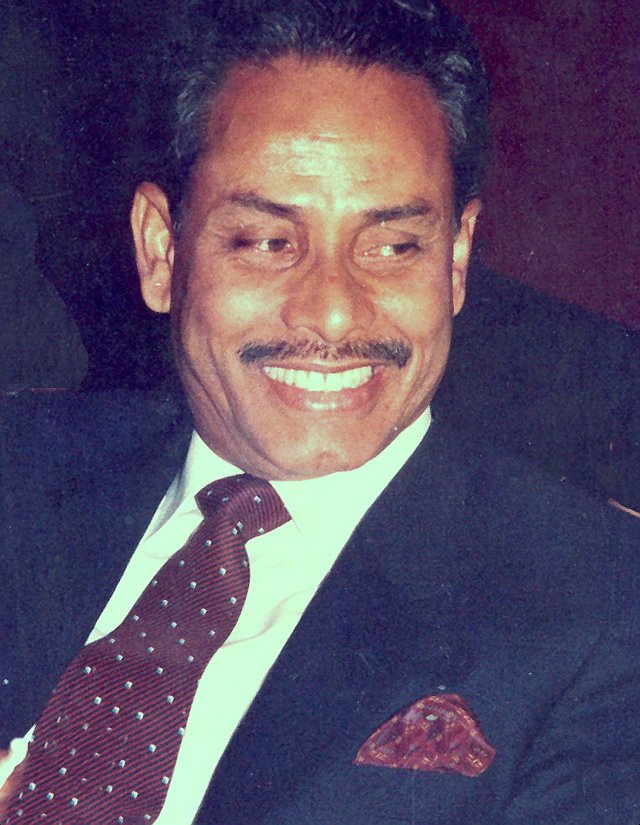
In spite of the financial and political shakiness amid the most recent long periods of the Mujib administration, the memory of the Bangabandhu evoked forceful feelings among his followers. Huge numbers of these, particularly previous flexibility contenders now in the armed force, were profoundly angry of the majors. One of these Mujib supporters, Brigadier Khaled Musharraf, propelled an effective overthrow on November 3, 1975. Boss Justice Abu Sadat Mohammad Sayem, who had served Mujib in the Supreme Court, rose as president. Musharraf had himself elevated to real broad, in this way supplanting Chief of Staff Zia.
In an open show coordinated to demonstrate his dependability to the killed Mujib, Musharraf drove a parade to Mujib's previous home. The response to Musharraf's undeniable devotion to Mujibist belief system and the dread that he would reestablish the previous pioneer's nearby ties with India encouraged the crumple of the new administration. On November 7, fomenters of the Jatiyo Samajtantrik Dal, a liberal yet emphatically hostile to Soviet and against Indian development, figured out how to actuate troops at the Dhaka cantonment against Musharraf, who was slaughtered in a firefight. President Sayem wound up boss military law manager, and the military administration boss, most altogether the armed force's Zia, moved toward becoming vice president military law overseers. Zia likewise went up against the arrangement of fund, home issues, industry, and data, and turning into the armed force head of staff.
It was not some time before Zia, with the sponsorship of the military, supplanted the elderly and delicate Sayem. Zia put off the presidential decisions and the parliamentary races that Sayem had before guaranteed and made himself boss conjugal law executive in November 1976.
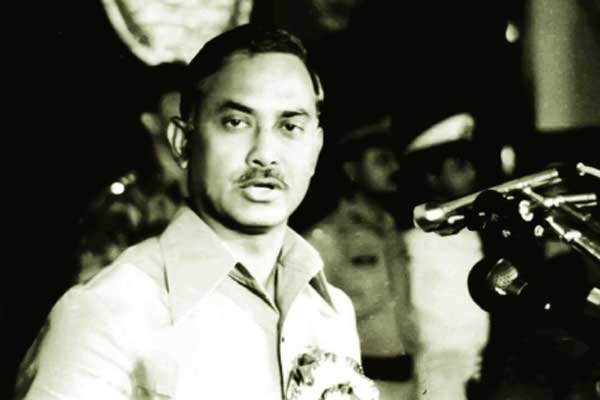
The Zia Regime and Its Aftermath, 1977—82.
In the feeling of numerous eyewitnesses, Zia, albeit heartless with his rivals, was the country's best pioneer since freedom. A spruce military officer, he changed himself into an alluring and famous political figure. Once portrayed as having a demeanor of "peaceful reluctance and guaranteed expert," Zia had unlimited vitality and invested a lot of his energy going all through the nation. Zia lectured the "governmental issues of expectation," ceaselessly asking all Bangladeshis to work harder and to create more. Not at all like Mujib, Zia used whatever ability he could assemble to goad on the economy, and he didn't segregate, as Mujib had, against government employees who had not completely partaken in the opportunity battle. Zia was an outstanding figure who initially rose broadly amid the freedom battle. His "Z Force" (Z for Zia) had been the first to declare the freedom of Bangladesh from a caught radio station in Chittagong.
Zia additionally endeavored to coordinate the military, giving repatriates a status fitting to their capabilities and position. This enraged a portion of the flexibility contenders, who had quickly achieved high positions. Zia deftly managed the issue officers by sending them on discretionary missions abroad. Zia made repatriate Major General Hussain Muhammad Ershad the appointee armed force head of staff. Having united his situation in the armed force, Zia moved toward becoming president on April 21, 1977, when Sayem surrendered on the grounds of "sick wellbeing." Zia presently held the prevailing positions in the nation and appeared to be bolstered by a dominant part of Bangladeshis.
In May 1977, with his capacity base progressively secure, Zia attracted on his fame to advance a nineteen-point political and financial program. Zia concentrated on the need to support Bangladeshi generation, particularly in nourishment and grains, and to coordinate rustic advancement through an assortment of projects, of which populace arranging was the most critical. He noticed the counsel of worldwide loaning offices and propelled an aggressive country improvement program in 1977, which incorporated an exceptionally unmistakable and well known foodfor-work program.
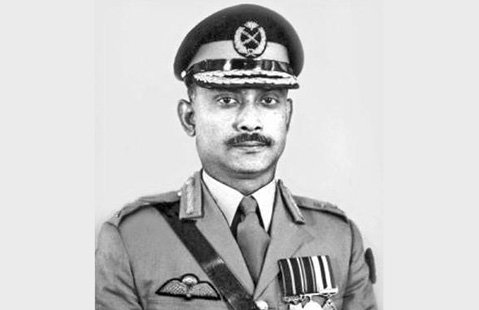
Invigorated with his proclamation, Zia confronted the electorate in a submission on his continuation in office. The consequences of what Zia called his "activity of the law based establishment," demonstrated that 88.5 percent of the electorate turned out and that 98.9 percent voted in favor of Zia. Albeit a few questions were thrown on how decently the choice was directed, Zia was, in any case, a mainstream pioneer with a plan the vast majority of the nation embraced. Zia deliberately attempted to change the military orientation of his administration, in the long run exchanging the majority of the portfolios held by military officers to regular folks. Proceeding with the way toward giving his administration a nonmilitary appearance, in June 1977 he picked as his VP Supreme Court equity Abdus Sattar, a regular citizen who had for quite some time been engaged with Bengali legislative issues.
A standout amongst the most vital errands Zia confronted was to alter the course of the nation. Zia modified the Constitution's ideological explanation on the essential standards, specifically changing the Mujibist accentuation on secularism to "finish trust and confidence in all-powerful Allah." While separating Bangladesh from India, Zia tried to enhance ties with other Islamic countries. All through his administration, Zia sought after a functioning outside arrangement, and the heritage of his endeavors kept on proving to be fruitful in the late 1980s. In 1980 Zia proposed a meeting for the seven countries of the subcontinent (Bangladesh, Bhutan, India, Maldives, Nepal, Pakistan, and Sri Lanka) to examine the prospects for local collaboration in various fields. This activity was effective in August 1983 when the South Asian Association for Regional Cooperation (SAARC—see Glossary) was set up.
Zia's organization restored open request, which had weakened amid the Mujib years. Uncommon common and military councils managed brutally with the huge numbers of expert scoundrels, bootleggers, and guerrilla groups. A proceeding with issue with one of these furnished gatherings drove by Kader "Tiger" Siddiqi, a one-time opportunity contender and previous enrolled man in the Pakistan Army, was facilitated when the Janata Party came to control in llndia in mid 1977. The new Indian leader, Morarji Desal, ceased the help and haven that Indira Gandhi's administration had given to ace Mujib rebels conflicting with the legislature.
President Zia's endeavors to calm the military—isolated and politicized since freedom—were not by any stretch of the imagination effective. In late September 1977, Japanese Red Army psychological oppressors seized aJapan Air Lines plane and constrained it to arrive in Dhaka. On September 30, while the consideration of the administration was bolted on this occasion, an uprising broke out in Bogra. In spite of the fact that the uprising was immediately suppressed the evening of October 2, a second rebellion happened in Dhaka. The rebels unsuccessfully assaulted Zia's habitation, caught Dhaka Radio for a brief timeframe, and killed various aviation based armed forces officers at Dhaka International Airport (exhibit day Zia International Airport), where they were accumulated for arrangements with the robbers. The rebellions, which pulled in overall scope, were rejected by the legislature as a contention between aviation based armed forces enrolled men and officers with respect to pay and administration conditions (see Organization of the Armed Forces, ch. 5). The armed force rapidly put down the resistance, yet the legislature was extremely shaken. The administration knowledge organize had obviously fizzled, and Zia immediately expelled both the military and the regular citizen insight boss. Three of the applicants to the armed force head of staff post, at the time held by Zia, were likewise evacuated; in 1981 one of them, Major General Muhammad Manzur Ahmed, was to lead the overthrow that brought about the death of Zia.
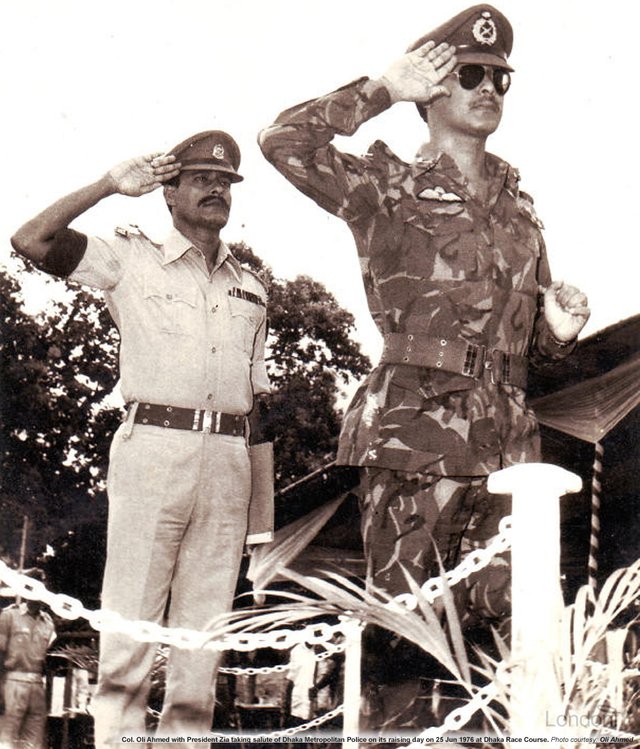
After the Dhaka rebellion, Zia proceeded with his gets ready for political standardization, demanding being called "president" as opposed to "significant general" and forbidding his military associates from holding both bureau and military positions. In April 1978, Zia declared that races would be held to "make ready to vote based system," including that the Constitution would be changed to accommodate an autonomous legal and also a "sovereign parliament." Zia likewise lifted the prohibition on political gatherings. He was bolstered by a "national front," whose fundamental gathering was the Jatiyo Ganatantrik Dal (National Democratic Party). As the hopeful of the Jatiyo Ganatantrik Dal-drove Nationalist Front, Zia won overwhelmingly, taking 76.7 percent of the vote against a front drove by General M.A.G. Osmany, the pioneer of the Mukti Bahini amid the war. Not long after, Zia extended the Jatiyo Ganatantrik Dal to incorporate real bits of the gatherings in the Nationalist Front. His new gathering was named the Bangladesh Nationalist Party and was going by Sattar. Parliamentary decisions followed in February 1979. In the wake of battling by Zia, the Bangladesh Nationalist Party won 207 of the 300 seats in Parliament with around 44 percent of the vote.
Zia was killed in Chittagong on May 30, 1981, in a plot professedly planned by Major General Manzur, the armed force authority in Chittagong. Manzur had before been head of the general staff and had been moved to Chittagong in the consequence of the October 1977 uprising. He was planned for another exchange to a noncommand position in Dhaka and was purportedly disillusioned over this. The armed force, under its head of staff, Major General Ershad, remained ioyal to the Dhaka government and rapidly put down the insubordination, murdering Manzur. In the preliminaries that took after, a sizable number of officers and enrolled men got capital punishment for complicity.
After Zia's death, Vice President Sattar wound up acting president and, as the Constitution stipulates, called for new decisions for president inside 180 days. Despite the fact that there was some hypothesis that Zia's dowager, Begum Khaleda Ziaur Rahman, and Mujib's little girl, Sheik Hasina Wajed, would be competitors, Sattar kept running against various political questions in the November decision and won the presidential race with 66% of the vote.
Sattar was an elderly man who his pundits thought to be incapable, however his most prominent shortcoming, according to the military, was that he was a regular citizen. In spite of the fact that Zia had made light of his own military foundation, surrendered his situation of armed force head of staff, and received regular citizen dress and characteristics, he kept up solid connections with the equipped administrations. Promptly following the 1981 decision, Ershad pushed Sattar for a sacred part for the military in the administration of the nation. After starting obstruction, Sattar, looked with the possibility of an upset, consented to set up the National Security Council in January 1982 with the president, VP, and head administrator speaking to the non military personnel side and the three administration boss speaking to the military. In a last endeavor to restrain the impact of the military, Sattar eased various military officers from obligation in the administration.
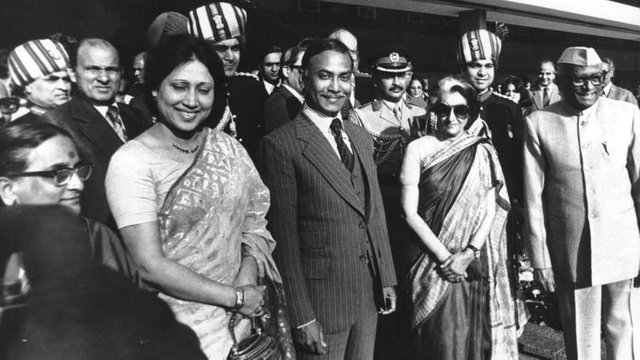
Sattar's choice to shorten military impact in the legislature incited a prompt reaction from Ershad. On March 24, 1982, Ershad expelled Sattar, disintegrated the bureau and the Parliament, and accepted full powers under military law. Resounding the expressions of numerous past military pioneers, Ershad declared that the military, as the main sorted out power in the country, had been compelled to assume control until the point that races could be held.
Ershad very quickly expected the title of "leader of the pastors," or head administrator, yet to numerous Bangladeshis he was a usurper, one who ousted a really chose president and who might turn around the moderate progression of Bangladeshi legislative issues—the "governmental issues of expectation" started prior by Zia. The occasions of March 1982 reflected a great part of the wild history of the nation and, numerous faultfinders concurred, foreshadowed a turbulent future for the battling country of Bangladesh (see The Ershad Period, ch. 4).
In spite of the fact that Bangladesh is a youthful country express, various great general narratives are accessible that cover the period from its difficult birth to the late 1980s. These incorporate Charles Peter O'Donnell's Bangladesh.' Biography of a Muslim Nation; Talukder Maniruzzaman's The Bangladesh Revolution and Its Aftermath; Marcus F. Franda's Bangladesh: The First Decade; Craig Baxter's succinct Bangladesh.' A New Nation in an Old Setting; and Anthony Mascarenhas' Bangladesh: A Legacy of Blood. There are various books that arrangement with Bangladesh's preindependence past as East Pakistan, as a major aspect of the British and Mughal realms of India, and as the eastern piece of Bengal, a social element coming to back to vestige. A testing of a portion of the fantastic general works accessible may incorporate A. L Basham '5 artful culmination, The Wonder That Was India; Romila Thapar's A History of India; Percival Spear's India.' A Modern History; Ramesh Chandra Majumdar's The History of Bengal; and Shahid Javed Burki's Pakistan: A Nation really taking shape. For those looking for a far reaching bibliographic list with respect to works covering Bangladesh and its noteworthy part in South Asia, the Bibliography of Asian Studies ought to be counseled. (For additional data and finish references, see Bibliography.)
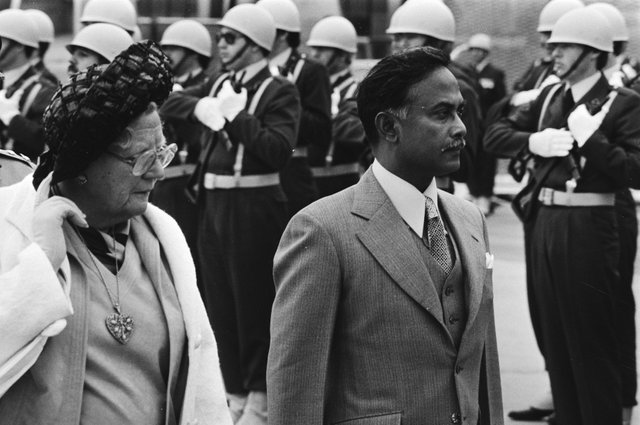
Highly informative article for the ones who are interested in History. Very well written and well versed article, indeed. Gained a lot of knowledge from it. You really are talented in writing blogs. Keep up the good work.
I have followed you and commented, upvoted your blog. Please return the favor and do the same.
Downvoting a post can decrease pending rewards and make it less visible. Common reasons:
Submit
Tnx for gd comment. And I will no worries.
Downvoting a post can decrease pending rewards and make it less visible. Common reasons:
Submit
@mamunjm Very nice and very informative information.Thanx for updating such type of information.
Downvoting a post can decrease pending rewards and make it less visible. Common reasons:
Submit
বাংলাদেশে আমি জন্মাতে পেরে আমি গর্বিত। আমি গর্বিত হয়েছি এই বাংলাদেশের মাটিতে জন্মাতে পেরে।
Downvoting a post can decrease pending rewards and make it less visible. Common reasons:
Submit